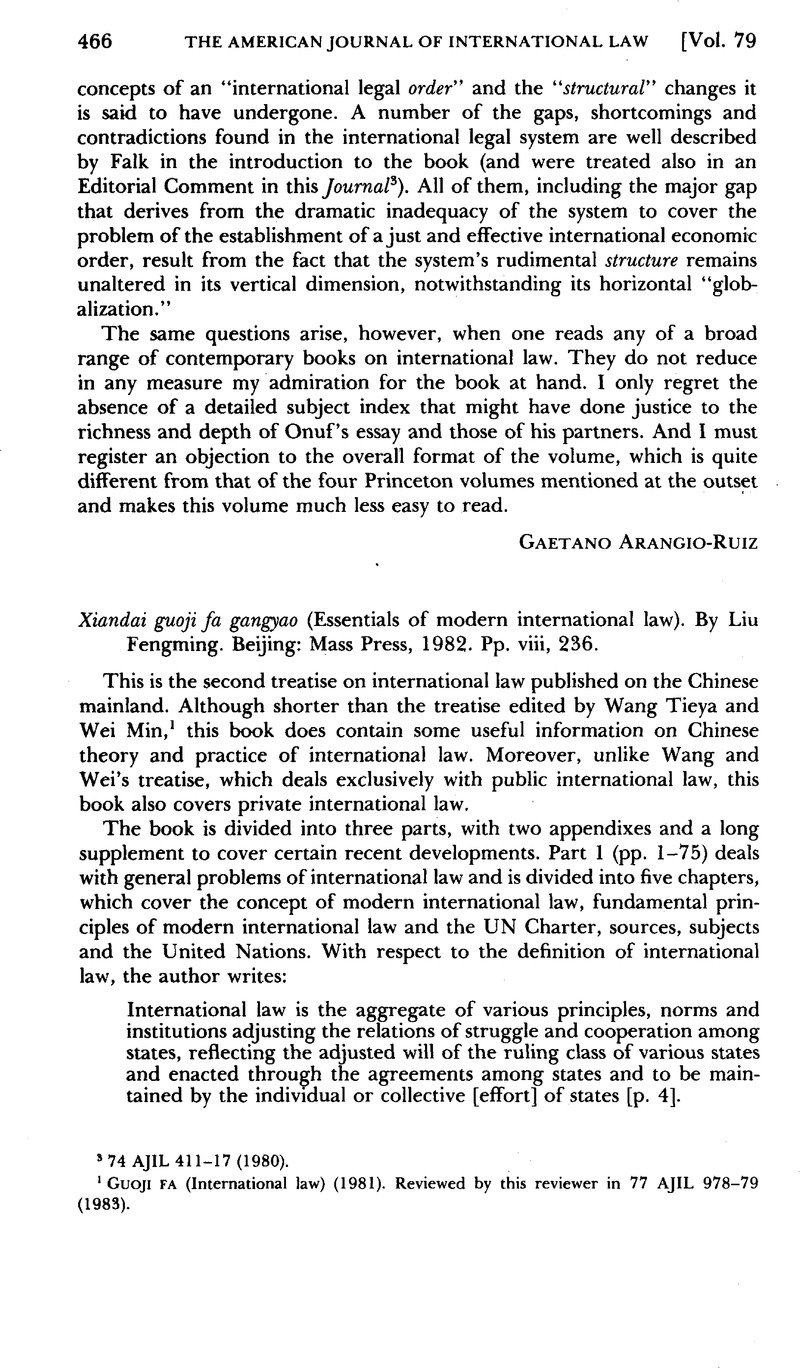No CrossRef data available.
Published online by Cambridge University Press: 27 February 2017

1 Guoji Fa, (International law) (1981)Google Scholar. Reviewed by this reviewer in 77 AJIL 978-79 (1983).
2 See, e.g., the following definition of international law in a 1964 Soviet textbook:
The aggregate of norms which are established by the agreement of states, including those with different social orders; express the wills of these states; regulate their struggle and collaboration on the basis, and in the interest, of the effective maintenance of peace and peaceful coexistence; and enforced when necessary, by collective or individual state action.
Mezhdunarodnoe Pravo (International Law) 8 (D. Levin, B. & Kaliuzhnaia, G. P. eds. 1964)Google Scholar, cited in Ramundo, B., Peaceful Coexistence: International Law in the Building of Communism 25 (1967)Google Scholar.
3 See Wang Tieya & Wei Min, supra note 1, at 1, 267.
4 Author of The Crisis in the Law of Nations (1947).
5 Author of International Law and Global Ideological Conflict, 45 AJIL 648-70 (1951).
6 The proceedings were edited by this reviewer and Robert Downen and published in the Occasional Papers/Reprints Series in Contemporary Asian Studies, No. 8-1981 (45), by the University of Maryland School of Law.
7 The question was first raised by Dr. Yung Wei of the Republic of China in Taiwan at a conference held in Seoul, so he was singled out for criticism by the author.